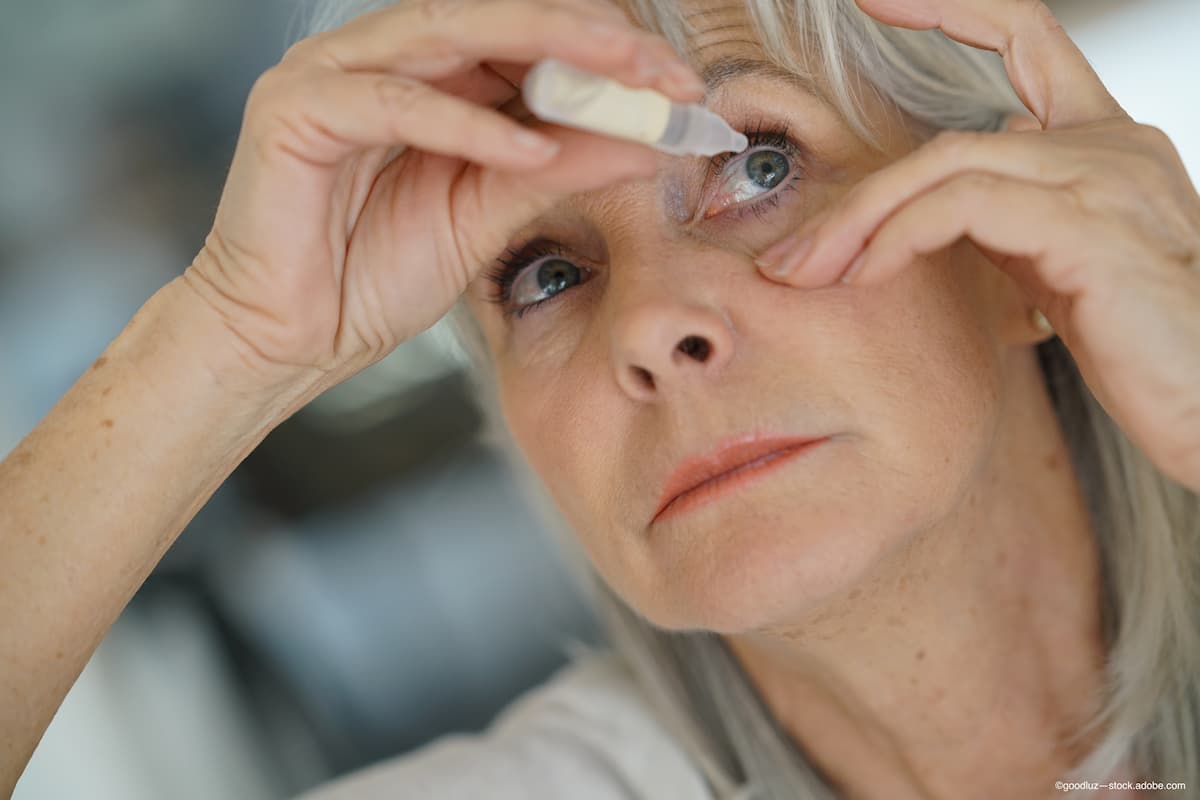Presbyopia-correcting eye drops earn FDA approval
Allergan developed VUITY, which it noted is the first and only FDA-approved eye drop to treat presbyopia.

Allergan, an AbbVie company, announced FDA approval of pilocarpine HCl ophthalmic solution 1.25% (VUITY) for the treatment of presbyopia, commonly known as age-related blurry near vision, in adults.
According to the company, pilocarpine HCl ophthalmic solution 1.25% is the first and only FDA-approved eye drop to treat this common and progressive eye condition that affects 128 million Americans, nearly half of the US adult population.
Michael Severino, MD, vice chairman and president of AbbVie, noted that most adults cope with presbyopia, or difficulty with near vision, as they age.
“Beginning around the age of 40, many find themselves using reading glasses, holding text further away, or even increasing the font size and lighting on screens to try to see more clearly," he said in a statement. “We are proud to offer VUITY as a first-of-its-kind once-daily eye drop that we believe will change the way people and their eye doctors approach presbyopia. The FDA approval of VUITY exemplifies our continued pursuit of innovative new treatments that push the boundaries of what's possible in eye care.”
Pilocarpine HCl ophthalmic solution 1.25% is a daily, prescription eye drop that works in as early as 15 minutes and lasts up to 6 hours, as measured on day 30, to improve near and intermediate vision without impacting distance vision.
Specifically designed for presbyopia, pilocarpine HCl ophthalmic solution 1.25% is an optimized formulation of pilocarpine, an established eye care therapeutic, delivered with pHast technology. The proprietary pHast technology allows pilocarpine HCl ophthalmic solution 1.25%to rapidly adjust to the physiologic pH of the tear film. Pilocarpine HCl ophthalmic solution 1.25% uses the eye's own ability to reduce pupil size, improving near vision without affecting distance vision.
"As we age, the lenses of our eyes become less flexible, making it more difficult to focus on things up close. VUITY offers a novel, safe, well-tolerated and effective alternative to current options for managing age-related blurry near vision," said George O. Waring IV, MD, FACS, medical director, Waring Vision Institute, South Carolina, and GEMINI 1 and GEMINI 2 principal study investigator. "I am particularly encouraged by the rapid onset of action and duration of efficacy for VUITY to improve near and intermediate vision without impacting distance vision with one drop daily, particularly for those with mild to moderate presbyopia."
The FDA approval of VUITY is based on data from two pivotal phase 3 clinical studies, GEMINI 1 and GEMINI 2, which evaluated the efficacy, safety and tolerability of VUITY for the treatment of presbyopia. In both studies, the drops met the primary endpoint, reaching statistical significance in improvement in near vision in low light (mesopic) conditions without a loss of distance vision versus the vehicle (placebo) on day 30 at hour 3. Additionally, improvement was seen as early as 15 minutes and lasted through 6 hours. There were no serious adverse events observed in participants receiving VUITY in either the GEMINI 1 or GEMINI 2 study. The most common adverse events occurring at a frequency of >5% were headache and eye redness.
In the phase 3 GEMNI 1 and GEMINI 2 clinical studies, a total of 750 participants aged 40 to 55 years old with presbyopia were randomized in the two studies in a one-to-one ratio of placebo to pilocarpine HCl ophthalmic solution 1.25%.
According to the company, study participants were instructed to administer one drop of VUITY or placebo once daily in each eye.
Both studies met their primary endpoints with a statistically significant proportion of participants treated with VUITY gaining three lines (the ability to read three additional lines on a reading chart) or more in mesopic (in low light), high contrast, binocular distance corrected near visual acuity (DCNVA), without losing more than 1 line (5 letters) of corrected distance visual acuity (CDVA) at day 30, hour 3, versus placebo.
There were no serious adverse events observed in any participants treated with pilocarpine HCl ophthalmic solution 1.25% VUITY in either clinical study. The most common treatment emergent non-serious adverse events occurring at a frequency of >5% in participants treated with pilocarpine HCl ophthalmic solution 1.25% were headache and eye redness.